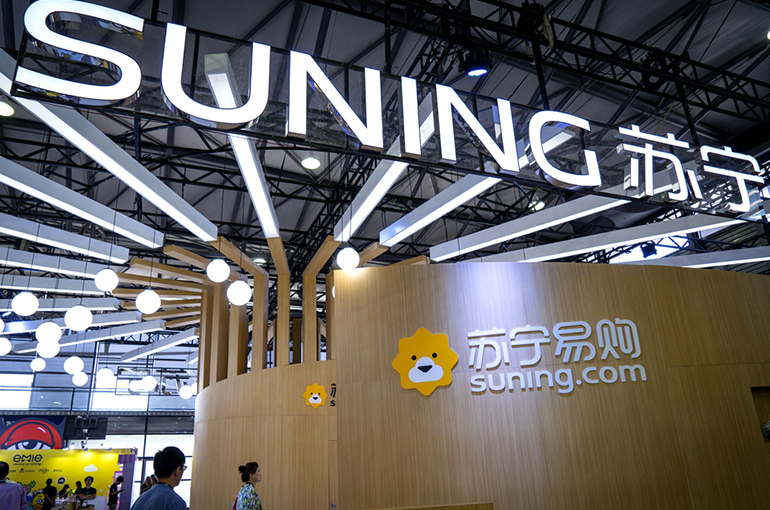 Chinese Retailer Suning to Sell Carrefour Operating Units in Four Chinese Cities for 55 US Cents
Chinese Retailer Suning to Sell Carrefour Operating Units in Four Chinese Cities for 55 US Cents(Yicai) June 20 -- Troubled Chinese retail giant Suning.Com said it would sell its operating subsidiaries of hypermarket chain Carrefour in four cities across China for the symbolic price of CNY4 (55 US cents).
The buyer is a consortium formed by several asset managers for this acquisition, Suning announced late yesterday. The move aims to alleviate the firm's debt burden and allow it to focus on its main 3C (computers, communications, and consumer electronics) retail business, it added.
The four units operate Carrefour supermarkets in eastern Ningbo and Hangzhou, central Zhuzhou, and northeastern Shenyang, Suning noted, adding that they had ceased operations and were burdened by significant debt before the transaction.
Based on preliminary calculations by Suning's finance department, the sale will likely boost the Nanjing-based firm's net profit by around CNY572 million (USD79.7 million) this year, according to the company. The move should also streamline non-core businesses and alleviate debt burden, it added.
The Carrefour operating subsidiaries being sold can bring in experienced professional asset management institutions via this deal, thereby initiating effective asset and debt restructuring efforts, Suning pointed out.
Suning unit Suning International acquired 80 percent of Carrefour China for CNY4.8 billion (USD668 million) in September 2019 to achieve synergy between the pair in offline retail outlets, supply chains, and membership data assets. It also intended to enhance the digitalization and omnichannel operational capabilities of Carrefour stores, facilitating the implementation of a smart retail strategy.
However, Suning began gradually closing Carrefour stores across China starting in 2023 due to changes in the market environment, consumer purchasing habits, and liquidity issues that hindered its ability to provide ongoing financial support to the supermarket chain.
Suning's shares [SHE: 002024] rose 2.2 percent to CNY1.87 each as of 2 p.m. in Shenzhen today, after earlier jumping by as much as 3.8 percent.
Editor: Martin Kadiev